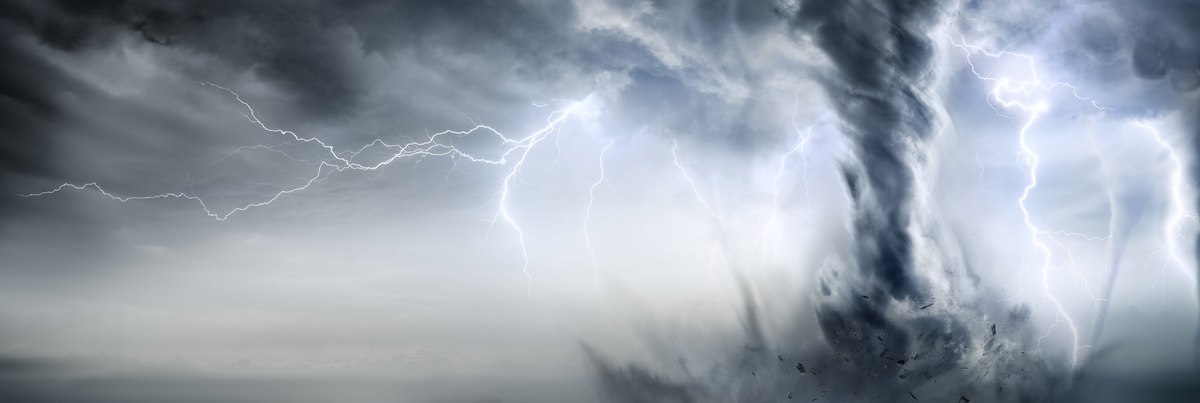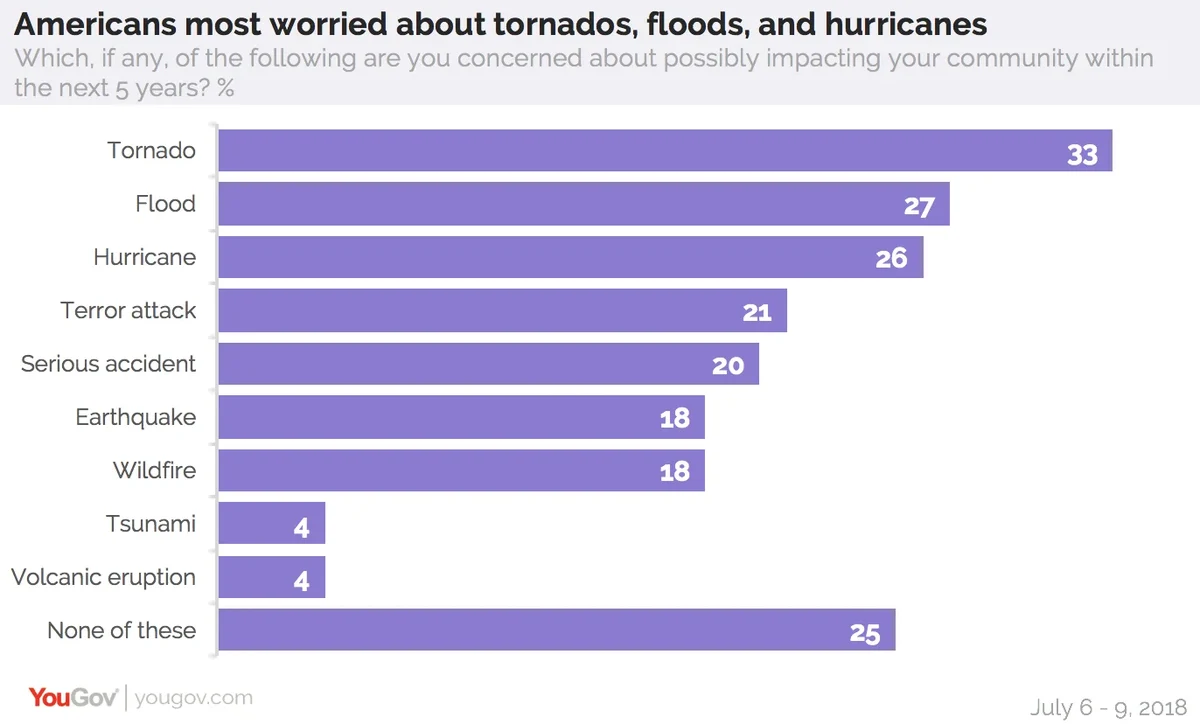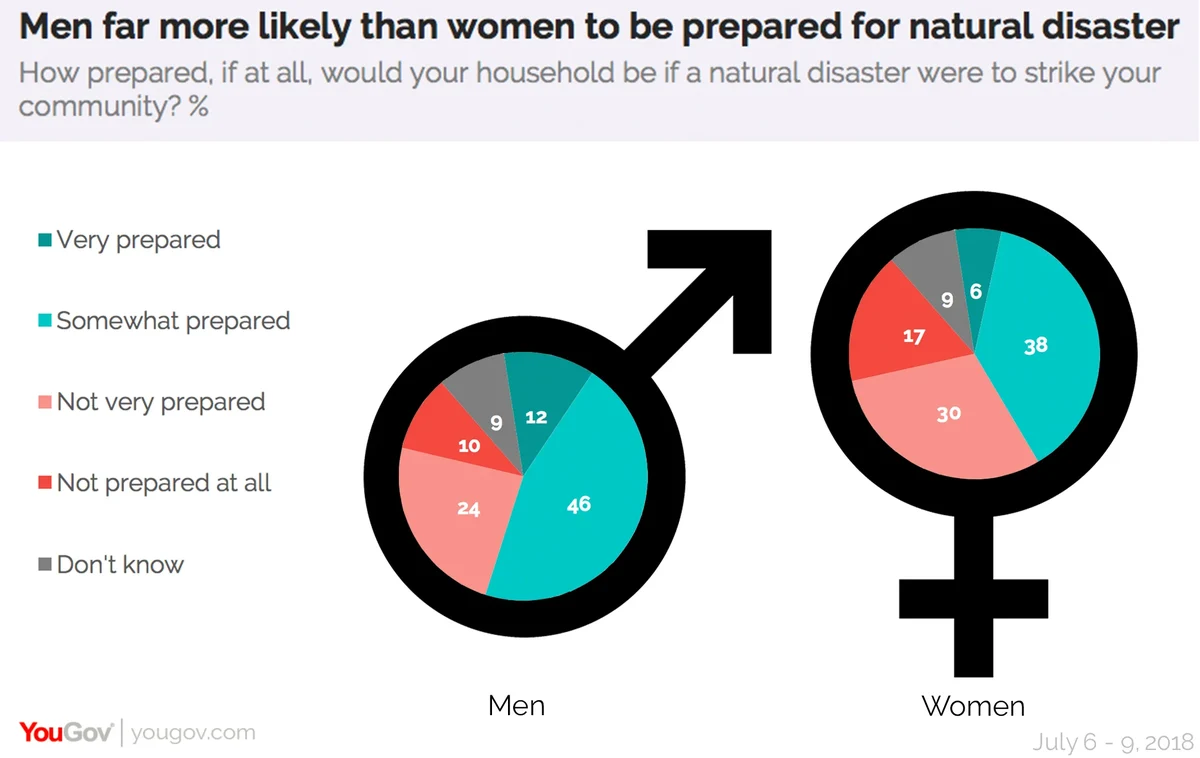
Many Americans aren't prepared for a natural disaster
Men were about twice as likely as women to describe themselves as “very prepared” for a natural disaster or a terror attack
Three-quarters of Americans say they are worried about natural disasters, terror attacks, or serious accidents affecting their communities, but many of them also say they aren’t adequately prepared for these calamities, according to new data from YouGov Omnibus.
One-third (33%) of people said they were concerned about a tornado affecting their community, while a slightly lower number (27%) said they were concerned about a flood. Another 26% were concerned about being affected by a hurricane, while one in five (21%) were concerned about the possibility of a terror attack.

Perhaps unsurprisingly, people in different regions of the US had different concerns when it comes to disasters: People in the West were more than twice as likely to be concerned about earthquakes compared to the total population, while people in the South were twice as likely to be concerned about hurricanes. Nearly half (47%) of people in the Midwest are concerned about a tornado, but approximately one-third (34%) of people in this same region said they weren’t concerned about any natural disasters at all.
But it seems that concern about a disaster doesn’t necessarily mean a household is preparing for it. Forty-one percent of people say they’re not prepared for a natural disaster, while a slight majority (51%) say that they are prepared. Only 32% of people say they’re prepared for a terror attack.
Men were about twice as likely as women to describe themselves as “very prepared” for a natural disaster or a terror attack. Almost half (47%) of women described themselves as “not very prepared” or “not prepared at all,” for a natural disaster, compared to only 34% of men who chose these responses.

Income also appears to influence how prepared people are for a disaster. Households who make more than $80,000 per year are about 20% more likely to say they’re prepared for an natural disaster, compared to households making between $40K and $80K. People with household incomes of under $40K are the most likely of any income group to say they are “not prepared at all” for a natural disaster -- nearly one in five (19%) chose this answer.
When it comes to being prepared for an emergency, 39% say they have an emergency kit, while another 39% have a non-perishable food stock. A little less than one-third (28%) of people have stockpiles of water, and one in four people (25%) have an evacuation plan.
Of those who have an emergency kit, the most common items to have in the kit are: a first-aid kit (86%), flashlights or other light sources (83%), food (65%), water (63%), and blankets (62%).
When asked about what emergency measures they have in place, several people also elected to write in their own answers. Almost a dozen people said they would have guns or firearms ready in case of an emergency, while one person simply wrote “God is in control.”
See full results here.
Learn more about YouGov Omnibus.
Image: Getty